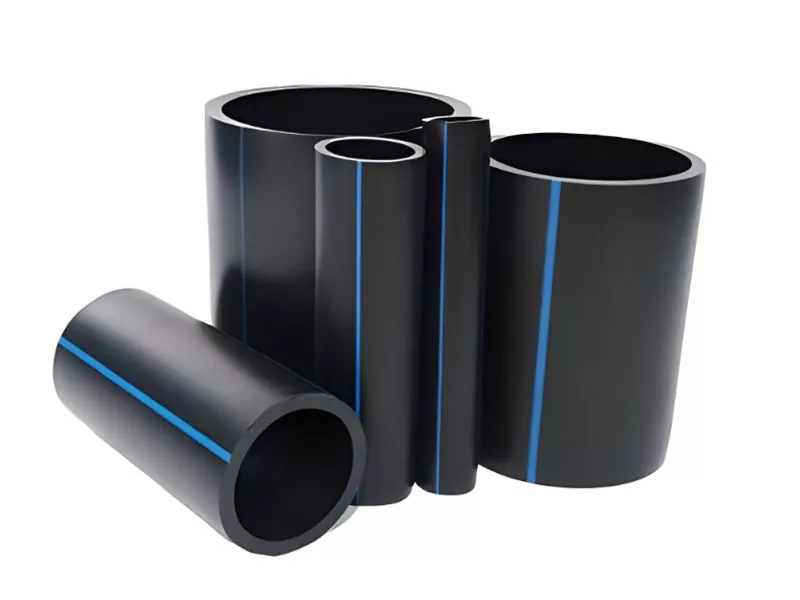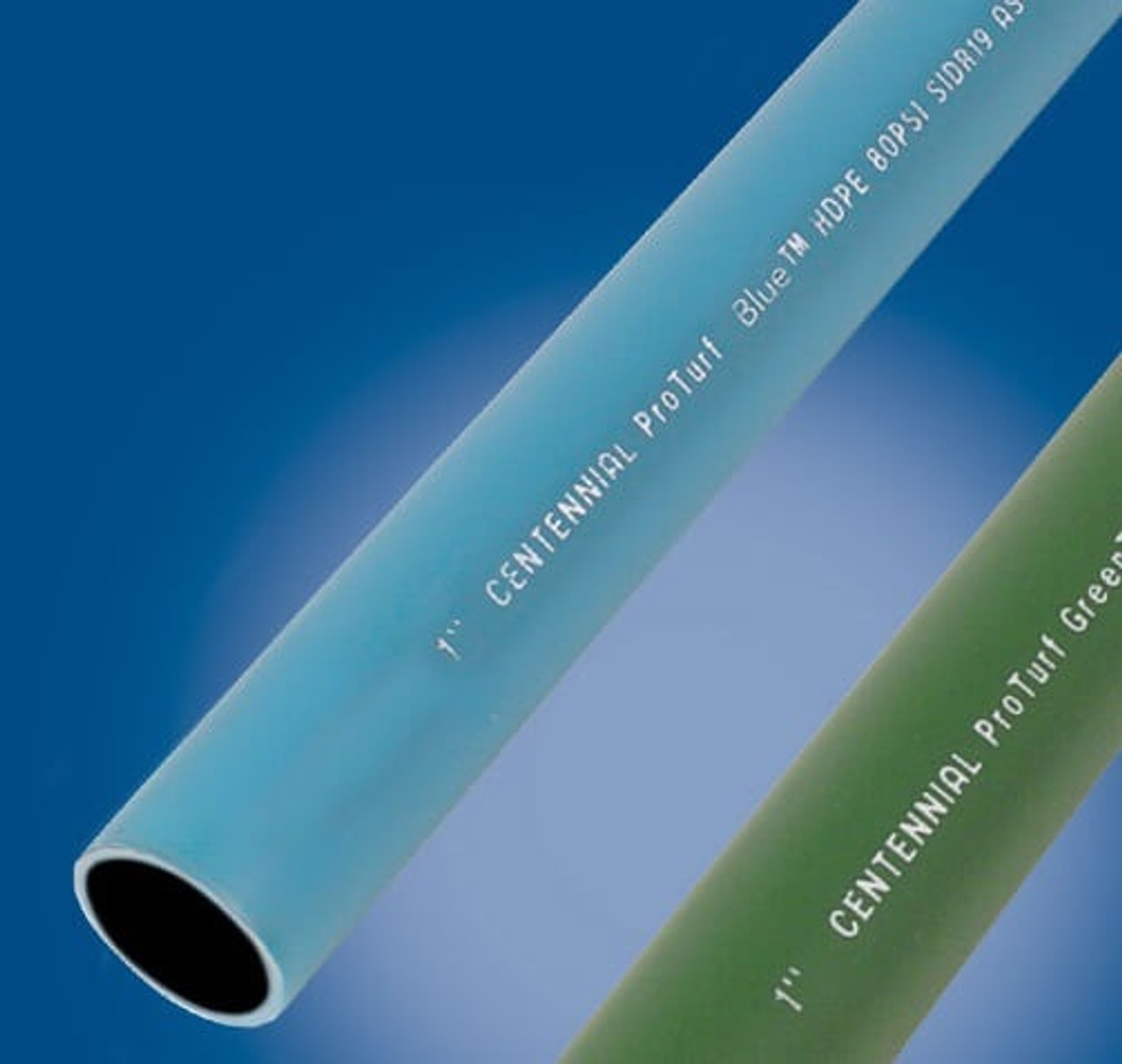Why Pipe Supplier American Plastics Midland Is the Go-To Source for Contractors
A Comprehensive Overview to the Various Uses of HDPE Pipe in Construction and Industry
HDPE pipelines have become a critical part in contemporary building and industrial applications. Their one-of-a-kind residential properties, such as resistance to rust and light-weight design, make them ideal for a wide variety of usages. From water supply systems to farming watering, HDPE pipes provide services that enhance efficiency and sustainability. Comprehending their varied applications is vital for specialists seeking to maximize framework. What particular advantages do these pipelines offer each industry?
Water and Distribution Systems
Water and circulation systems are crucial components of city framework, frequently counting on high-density polyethylene (HDPE) pipes for their durability and performance. These systems transportation potable water from therapy centers to customers, making certain accessibility and safety and security. HDPE pipes are preferred for their resistance to deterioration, chemicals, and extreme temperatures, which enhances their long life and decreases upkeep costs. Additionally, their lightweight nature permits simpler installation and transport, making them excellent for numerous city and rural applications.
The flexibility of HDPE pipelines enables them to be mounted in limited rooms and around barriers, reducing the demand for considerable excavation (Pipe Manufacturing Midland TX). Their smooth interior surface area decreases friction losses, improving water flow rates. As cities proceed to grow, the demand for dependable supply of water systems increases, positioning HDPE pipes as a lasting service for contemporary framework jobs. Their tested performance history makes them a favored option amongst designers and urban coordinators alike
Wastewater Monitoring and Treatment
Effective wastewater management and treatment are necessary for preserving public health and wellness and environmental top quality. HDPE pipelines play a crucial function in this process because of their resilience, resistance to corrosion, and ability to endure severe chemicals. These pipelines are typically utilized in various applications, consisting of sewer system, stormwater water drainage, and wastewater therapy centers. Their light-weight nature promotes much easier installment and transportation, reducing labor costs and time.
Additionally, HDPE pipes have a smooth interior surface area that reduces rubbing loss, advertising efficient flow rates. They are likewise less vulnerable to leakages and failings compared to traditional materials, making sure that pollutants are included successfully. Their versatility enables for versatility in different soil problems, making them suitable for diverse environmental settings. As industries increasingly prioritize sustainable practices, making use of HDPE pipelines in wastewater monitoring systems straightens with objectives for minimizing environmental effect and improving resource recovery.
Agricultural Irrigation Solutions
In agricultural settings, efficient irrigation solutions are crucial for maximizing crop returns and handling water resources. HDPE (High-Density Polyethylene) pipelines play a vital duty in contemporary irrigation systems as a result of their durability, adaptability, and resistance to rust. Their ability to endure high stress makes them optimal for both surface and subsurface watering applications, guaranteeing consistent water circulation across fields.
Farmers can use HDPE pipes in drip irrigation systems, which supply water directly to plant origins, lessening wastefulness and promoting healthy and balanced growth. In addition, these pipes are lightweight and very easy to install, lowering labor costs and setup time. Their lengthy life expectancy and reduced maintenance needs even more enhance their appeal in farming methods.
Furthermore, HDPE pipes are eco-friendly, as they can be recycled and do not seep dangerous chemicals into the dirt. This makes them a lasting option for farmers intending to adopt environment-friendly agricultural approaches while maximizing performance.
Industrial Applications and Processes
Versatility is a hallmark of HDPE pipelines, making them important in different industrial applications and processes. These pipes are commonly utilized in chemical processing sectors as a result of their outstanding resistance to a vast array of destructive materials. HDPE's light-weight nature, integrated with high tensile stamina, permits easy installation and long-lasting efficiency popular settings.
In the oil and gas market, HDPE pipelines play a crucial role in transporting hydrocarbons and gases, many thanks to their toughness and adaptability - Pipe Supplier American Plastics Midland. In addition, they are used in mining procedures for the transportation of slurry and other products, where traditional piping systems might stop working
HDPE pipelines are significantly made use of in producing centers for water supply lines and wastewater monitoring. Their capability to withstand extreme temperature levels and stress makes them ideal for a variety of commercial procedures. Overall, HDPE pipelines add greatly to performance and safety across varied commercial applications.
Stormwater Management and Water Drainage Equipments
Stormwater management and water drainage systems are crucial elements in city framework, designed to manage excess rainfall and minimize flooding threats. High-density polyethylene (HDPE) pipelines are significantly made use of in these systems due to their longevity, flexibility, and resistance to corrosion. These pipes efficiently carry stormwater far from booming locations, minimizing surface area drainage and avoiding waterlogging.
HDPE's lightweight nature helps with much easier installment, lowering labor costs and building time. Additionally, its resistance to chemicals and ecological stressors assurances long life and reliability in numerous environments. In enhancement to conventional drainage click here applications, HDPE pipelines are additionally used in ingenious services such as eco-friendly infrastructure, that includes rain gardens and absorptive sidewalks.

Often Asked Concerns
How Does HDPE Pipeline Compare to PVC Pipe in Expense?
As a whole, HDPE pipeline tends to be extra costly than PVC pipeline due to its enhanced resilience and flexibility. Long-term cost considerations, such as upkeep and lifespan, might favor HDPE in certain applications.
What Is the Life Expectancy of HDPE Piping Under Varying Conditions?
HDPE pipelines commonly have a life-span of 50 to 100 years, depending upon environmental problems, setup techniques, and use. Variables such as temperature, soil type, and direct exposure to chemicals can greatly influence their toughness.
Can HDPE Water Lines Be Recycled After Use?
Yes, HDPE pipes can be reused after use. The recycling procedure involves melting down the product, allowing it to be repurposed into new items, therefore promoting sustainability and decreasing ecological influence connected with plastic waste.
Are There Any Specific Setup Challenges With HDPE Pipes?
Setup obstacles with HDPE pipelines consist of correct jointing strategies, making certain adequate trench problems, and handling thermal growth. In addition, proficient labor is called for to deal with customized tools, which can complicate the installment process in various environments.

What Accreditations Should I Seek When Investing In HDPE Water Lines?
When buying HDPE pipes, one must search for certifications such as ASTM, AASHTO, and ISO, which verify quality and conformity with industry requirements, ensuring longevity and efficiency in different applications. - hdpe pipe in stock Midland TX